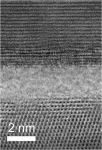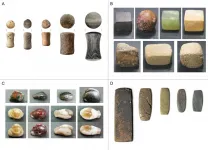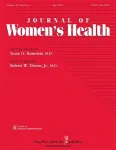Novel heat-management material keeps computers running cool
2021-06-29
(Press-News.org) UCLA engineers have demonstrated successful integration of a novel semiconductor material into high-power computer chips to reduce heat on processors and improve their performance. The advance greatly increases energy efficiency in computers and enables heat removal beyond the best thermal-management devices currently available.
The research was led by Yongjie Hu, an associate professor of mechanical and aerospace engineering at the UCLA Samueli School of Engineering. Nature Electronics recently published the finding in this article.
Computer processors have shrunk down to nanometer scales over the years, with billions of transistors sitting on a single computer chip. While the increased number of transistors helps make computers faster and more powerful, it also generates more hot spots in a highly condensed space. Without an efficient way to dissipate heat during operation, computer processors slow down and result in unreliable and inefficient computing. In addition, the highly concentrated heat and soaring temperatures on computer chips require extra energy to prevent processers from overheating.
In order to solve the problem, Hu and his team had pioneered the development of a new ultrahigh thermal-management material in 2018. The researchers developed defect-free boron arsenide in their lab and found it to be much more effective in drawing and dissipating heat than other known metal or semiconductor materials such as diamond and silicon carbide. Now, for the first time, the team has successfully demonstrated the material's effectiveness by integrating it into high-power devices.
In their experiments, the researchers used computer chips with state-of-the-art, wide bandgap transistors made of gallium nitride called high-electron-mobility transistors (HEMTs). When running the processors at near maximum capacity, chips that used boron arsenide as a heat spreader showed a maximum heat increase from room temperatures to nearly 188 degrees Fahrenheit. This is significantly lower than chips using diamond to spread heat, with temperatures rising to approximately 278 degrees Fahrenheit, or the ones with silicon carbide showing a heat increase to about 332 degrees Fahrenheit.
"These results clearly show that boron-arsenide devices can sustain much higher operation power than processors using traditional thermal-management materials," Hu said. "And our experiments were done under conditions where most current technologies would fail. This development represents a new benchmark performance and shows great potential for applications in high-power electronics and future electronics packaging."
According to Hu, boron arsenide is ideal for heat management because it not only exhibits excellent thermal conductivity but also displays low heat-transport resistance.
"When heat crosses a boundary from one material to another, there's typically some slowdown to get into the next material," Hu said. "The key feature in our boron arsenide material is its very low thermal- boundary resistance. This is sort of like if the heat just needs to step over a curb, versus jumping a hurdle."
The team has also developed boron phosphide as another excellent heat-spreader candidate. During their experiments, the researchers first illustrated the way to build a semiconductor structure using boron arsenide and then integrated the material into a HEMT-chip design. The successful demonstration opens up a path for industry adoption of the technology.
INFORMATION:
In addition to Hu, other co-lead authors on the paper are UCLA graduate students and members of his research group Joon Sang Kang, Man Li, Huan Wu and Huuduy Nguyen. Co-author Toshihiro Aoki of the Irvine Materials Research Institute also contributed to the study, conducting microscopy measurements.
The research was supported by the Watanabe Excellence in Research Award; the Alfred P. Sloan Foundation; the National Science Foundation; the U.S. Air Force Office of Scientific Research; the Sustainable LA Grand Challenge; and the Anthony and Jeanne Pritzker Family Foundation. The team also used computational and storage services provided by the UCLA Institute for Digital Research and Education's Research Technology Group, and the Extreme Science and Engineering Discovery Environment (XSEDE), which is supported by the National Science Foundation.
[Attachments] See images for this press release:

ELSE PRESS RELEASES FROM THIS DATE:
2021-06-29
Scientists and doctors at University College London Great Ormond Street Institute of Child Health (UCL GOS ICH) and Great Ormond Street Hospital (GOSH) have given hope of a gene therapy cure to children with a rare degenerative brain disorder called Dopamine Transporter Deficiency Syndrome (DTDS).
The team have recreated and cured the disease using state-of-the-art laboratory and mouse models of the disease and will soon apply for a clinical trial of the therapy. Their breakthrough comes just a decade after the faulty gene causing the disease was first discovered by the lead scientist of this work.
The results, published in Science Translational Medicine, are so promising that the UK regulatory agency MHRA has advised ...
2021-06-29
Boulder, Colo., USA: Article topics include the Great Unconformity of the
Rocky Mountain region; new Ediacara-type fossils; the southern Cascade arc
(California, USA); the European Alps and the Late Pleistocene glacial
maximum; Permian-Triassic ammonoid mass extinction; permafrost thaw; the
southern Rocky Mountains of Colorado (USA); "gargle dynamics"; invisible
gold; and alluvial fan deposits in Valles Marineris, Mars. These Geology articles are online at
https://geology.geoscienceworld.org/content/early/recent
.
A new kind of invisible gold in pyrite hosted in deformation-related
dislocations
Denis Fougerouse; Steven M. Reddy; Mark ...
2021-06-29
Natural wood remains a ubiquitous building material because of its high strength-to-density ratio; trees are strong enough to grow hundreds of feet tall but remain light enough to float down a river after being logged.
For the past three years, engineers at the University of Pennsylvania's School of Engineering and Applied Science have been developing a type of material they've dubbed "metallic wood." Their material gets its useful properties and name from a key structural feature of its natural counterpart: porosity. As a lattice of nanoscale nickel struts, metallic wood is full of regularly spaced cell-sized pores that radically decrease its density without sacrificing the material's ...
2021-06-29
Knowing the weight of a commodity provides an objective way to value goods in the marketplace. But did a self-regulating market even exist in the Bronze Age? And what can weight systems tell us about this? A team of researchers from the University of Göttingen researched this by investigating the dissemination of weight systems throughout Western Eurasia. Their new simulation indicates that the interaction of merchants, even without substantial intervention from governments or institutions, is likely to explain the spread of Bronze Age technology to weigh goods. The results were ...
2021-06-29
Keep your checklists handy because the 62nd Supplement to the American Ornithological Society's Check-list of North American Birds, publishing today in Ornithology, includes numerous updates to the classification of the continent's bird species. A few highlights from this year's supplement, detailed below, include species splits for Mew Gull, Barred Owl, and Sedge Wren, among quite a few others; a transfer back to an old genus for Ruby-crowned Kinglet; and a revision of the linear sequence of passerine families. The Check-list, published since 1886, is updated annually by the AOS's North American Classification Committee (NACC), the official authority on the names and ...
2021-06-29
RICHLAND, Wash.--Researchers have increased the lifetime of a promising electric vehicle battery to a record level, an important step toward the goal of lighter, less expensive and long-lasting batteries for future electric vehicles. The work is reported June 28 in the journal Nature Energy.
Such batteries--the goal of research groups the world over--are seen as an important part of the solution to reduce the effects of climate change, and scientists are exploring a dizzying array of options.
One solution on the horizon is a lithium-metal battery for electric vehicles. These ...
2021-06-29
(San Antonio, June 29, 2021) - UTSA criminology and criminal justice professors Michael R. Smith and Rob Tillyer working in collaboration with University of Cincinnati Professor Robin Engel examined racial and ethnic disparities in the use of force by the Fairfax County Police Department (FCPD). One of the nation's largest county police departments, the FCPD serves Fairfax County, Va., a major metropolitan county near Washington, D.C.
The team presented the results of its 18-month study today to the Public Safety Committee of the Fairfax County Board of Supervisors. ...
2021-06-29
The historic 2020 hurricane season, with its record-breaking 30 tropical storms and hurricanes, left in its wake hundreds of deaths in the United States, tens of billions of dollars in damages, and one important question: Is this what the future will look like?
While most climate scientists agree that hurricane severity, at least in terms of rainfall, will likely increase as the planet warms, there remains uncertainty about the future frequency of hurricanes. Today's climate models offer a range of possible futures, some predicting an increase in North Atlantic hurricane frequency, others a decrease. These conflicting results beg the question: are these ...
2021-06-29
HOUSTON - (June 29, 2021) - When you think about trade and market relationships, you might think about brokers yelling at each other on the floor of a stock exchange on Wall Street. But it seems one of the basic functions of a free market is quietly practiced by fungi.
New research from a Rice University economist suggests certain networks of fungi embrace an important economic theory as they engage in trading nutrients for carbon with their host plants. This finding could aid the understanding of carbon storage in soils, an important tool in mitigating climate change.
A research paper entitled "Walrasian equilibrium behavior in nature" is available online and will appear in an upcoming edition of Proceedings of the National Academy of Sciences. Ted Loch-Temzelides, ...
2021-06-29
Among low-income, uninsured, or publicly insured women ages 25-64 years who were not up to date on cervical cancer screening, 72% perceived financial barriers to screening. The most commonly reported barriers were screening appointment costs (71%) and follow-up/future treatment costs (44%), according to a study published in the peer-reviewed Journal of Women’s Health. Click here to read the article now.
Screening is effective at reducing the incidence of and mortality associated with cervical cancer. However, disparities exist in cervical cancer incidence and mortality and in cervical cancer screening based ...
LAST 30 PRESS RELEASES:
[Press-News.org] Novel heat-management material keeps computers running cool




